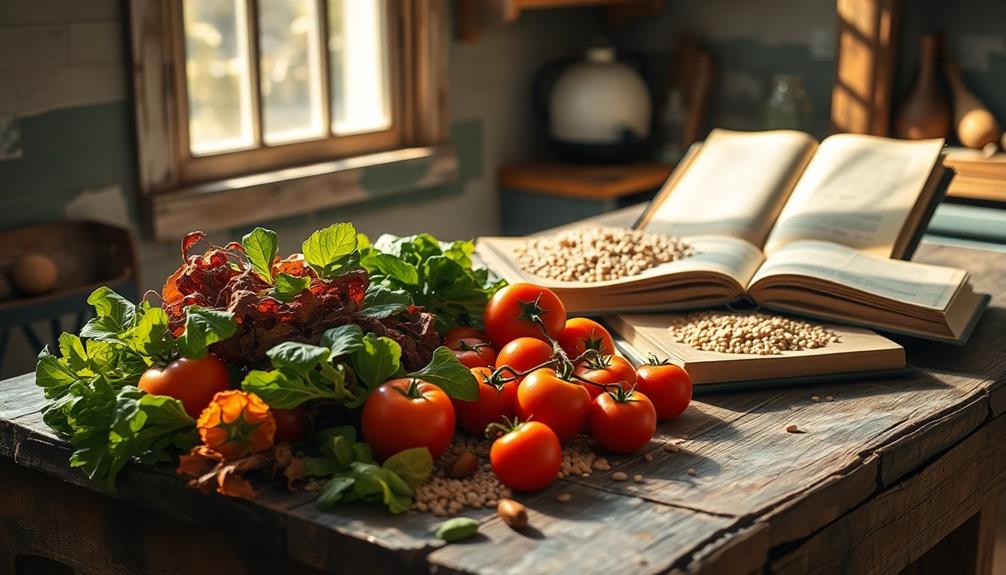
Introduction to the rise of plant-based eating in France
France, the land of croissants and coq au vin, is undergoing a delicious transformation. As we head towards 2025, a notable vegan trend is sweeping through this gastronomically rich country. More than just a fleeting fad, plant-based eating has taken root in French culture. From bustling Parisian cafés to quaint countryside bistros, green eating in Europe has never been so vibrant or diverse.
With health-conscious citizens seeking nutritious options without sacrificing flavor, the rise of plant-based diets signals an exciting shift in how people view food. It’s not only about personal well-being; it’s also about caring for our planet and advocating for animal welfare. Join us as we explore why this movement is more significant than ever and how it’s reshaping traditional French cuisine while inspiring future generations to embrace healthy eating habits.
Health benefits of a plant-based diet
A plant-based diet is increasingly recognized for its numerous health benefits. Rich in fruits, vegetables, whole grains, and legumes, it offers a treasure trove of nutrients.
Research shows that those who adopt this lifestyle often experience lower rates of heart disease. The high fiber content helps regulate cholesterol levels and keeps blood pressure in check.
Moreover, many people find weight management easier with plant-based eating. This approach tends to be lower in calories but rich in essential vitamins and minerals.
Additionally, studies suggest that a vegan diet can reduce the risk of certain cancers. Antioxidants found in plants may protect cells from damage over time.
Digestive health also improves significantly. A diverse range of fibers nourishes gut bacteria while promoting regularity.
As more individuals embrace green eating trends across Europe, the focus on holistic well-being continues to grow within society’s consciousness.
Environmental impact of meat consumption
Meat consumption has a significant environmental footprint. The production of meat is resource-intensive, demanding vast amounts of water and land. Livestock farming contributes to deforestation as forests are cleared for grazing.
Greenhouse gas emissions from cattle alone account for about 14% of global emissions. Methane, released during digestion, is particularly potent in warming the atmosphere.
Moreover, fertilizers used in animal feed can contaminate waterways, harming aquatic life and ecosystems. This pollution creates dead zones where few organisms can survive.
As France embraces plant-based eating, the shift could reduce these ecological burdens dramatically. Choosing plants over meat allows individuals to lighten their personal impact on the planet while promoting biodiversity.
Transitioning towards greener diets aligns with wider European goals for sustainability by encouraging practices that restore rather than exploit natural resources. It’s not just about food; it’s about nurturing our shared environment for future generations.
Veganism and animal welfare
Veganism goes hand in hand with the strong principles of animal welfare. Many choose this lifestyle to advocate for sentient beings, emphasizing compassion over consumption.
In a world where factory farming practices are often hidden from view, plant-based diets shine a light on ethical eating. Every meal devoid of meat sends a message against cruelty and exploitation.
The shift towards veganism encourages conversations about how animals are treated within the food industry. It raises awareness about their rights and well-being.
As more French citizens adopt this lifestyle, they find empowerment in making choices that align with their values. This growing movement reflects a deeper understanding of our connection to all living creatures.
Animal welfare is no longer just an afterthought; it has become integral to modern dietary choices in France and beyond. The commitment is clear: kindness can be delicious too.
Plant-based options in traditional French cuisine
French cuisine is renowned for its rich flavors and sumptuous dishes. However, the shift toward plant-based eating has inspired a delightful transformation in traditional recipes.
Classic ratatouille has become a celebrated staple, showcasing vibrant vegetables like zucchini, bell peppers, and eggplant. This rustic dish highlights the essence of seasonal produce while maintaining deep-rooted French culinary traditions.
Coq au Vin can be reimagined with mushrooms and lentils simulating the heartiness of poultry. The robust wine sauce remains intact, proving that vegan adaptations can still evoke familiar comfort.
Even desserts aren’t left behind! Crème brûlée now features coconut milk or cashew cream to create creamy textures without dairy.
Chefs across France are embracing these innovations, making plant-based options not just accessible but also enticing. Diners are rediscovering their love for classic French fare through a green lens—one that celebrates health and sustainability without sacrificing taste.
The influence of popular chefs and restaurants
Popular chefs in France are embracing the vegan trend 2025, showcasing how plant-based eating can elevate traditional cuisine. Renowned names like Alain Passard and Jean-François Piège have integrated vibrant vegetables and innovative techniques into their menus.
These culinary artists are not just following a fad; they’re setting trends that inspire home cooks across the country. By focusing on seasonal produce, they highlight flavors previously overshadowed by meat-centric dishes.
Restaurants dedicated to green eating in Europe are popping up everywhere. From chic bistros to high-end establishments, diners now encounter creative plant-based options that wow even the staunchest carnivores.
This shift encourages a broader audience to explore healthy eating habits while still enjoying exquisite meals. Chefs lead by example, proving that sustainability and taste can coexist beautifully on every plate served.
Government initiatives promoting plant-based eating
The French government is stepping up to support the vegan trend 2025. Initiatives aimed at promoting plant-based eating are becoming increasingly prevalent.
One notable effort is the inclusion of vegetarian options in school meals. This ensures that children develop a taste for green eating in Europe from an early age.
Additionally, campaigns encouraging local farmers to grow more legumes and vegetables have gained traction. These programs not only benefit public health but also stimulate local economies.
France’s commitment extends to educational programs about nutrition and sustainable choices as well. Workshops and resources teach citizens how they can incorporate plant-based foods into their diets effectively.
Moreover, some regions are launching subsidies for restaurants that feature plant-forward menus. This encourages culinary innovation while making healthy eating accessible for all demographics.
Challenges and criticisms of the plant-based movement in France
The plant-based movement in France isn’t without its challenges. One significant hurdle is the perception that veganism is an elitist lifestyle choice, accessible only to those with disposable income. Critics argue that this reinforces socio-economic divides.
Moreover, traditionalists often view plant-based eating as a threat to French culinary heritage. Dishes like coq au vin or boeuf bourguignon hold a cherished place in culture and cuisine. The adaptation of such classics can spark heated debates among food enthusiasts.
There’s also confusion surrounding nutrition. Many worry about missing essential nutrients typically found in meat and dairy products. This concern leads some to dismiss plant-based diets outright.
Marketing plays a role too; many brands promote processed vegan options, which may not align with the principles of healthy eating or sustainability that advocates champion.
Personal experiences and testimonials from French citizens
Marie, a 32-year-old Parisian, shares her journey into plant-based eating. “At first, it was about health,” she explains. “But as I learned more, it became a lifestyle.” She now thrives on colorful salads packed with seasonal veggies from local markets.
Jean-Luc, a chef in Lyon, has transformed his restaurant’s menu to embrace green options. He believes this shift reflects the desires of modern diners. “People want to feel good about what they eat,” he says passionately.
Then there’s Camille, who hosts supper clubs focused on vegan French cuisine. Her dishes highlight traditional flavors while being completely plant-based. “It’s all about creativity!” she smiles.
For many like Eloise in Bordeaux, switching to a plant-based diet has improved energy levels and overall well-being. “I’ve never felt better,” she beams after sharing her favorite chickpea ratatouille recipe at a community potluck event.
The future of plant-based eating in
The future of plant-based eating in France is looking promising. As the vegan trend 2025 gains momentum, more individuals are embracing green eating as part of their lifestyle. The integration of plant-based options into traditional French cuisine demonstrates that delicious meals can be both satisfying and sustainable.
With a growing awareness of health benefits associated with healthy eating, many are making conscious dietary changes. This shift is not just about personal wellness; it’s also linked to broader environmental considerations. France’s beautiful landscapes deserve protection from the damaging effects of meat consumption.
Culinary innovation thrives in this evolving food landscape, driven by passionate chefs and restaurants eager to showcase how vibrant and flavorful plant-based dishes can be. Government initiatives further support this movement, encouraging citizens to explore new eating habits while reducing their carbon footprint.
Yet challenges remain. Critics voice concerns about accessibility and nutrition balance within a purely plant-based diet. Addressing these issues will be essential for ensuring inclusivity as more people join the ranks of those choosing green eating in Europe.
Personal stories from French citizens reveal diverse motivations behind their choices—from ethical concerns regarding animal welfare to simply wanting to feel healthier and energized. These testimonials reflect a significant cultural shift towards embracing plants on our plates.
As we look ahead, it’s clear that the interest in plant-based diets will continue growing, reshaping France’s culinary identity while promoting sustainability for generations to come.








